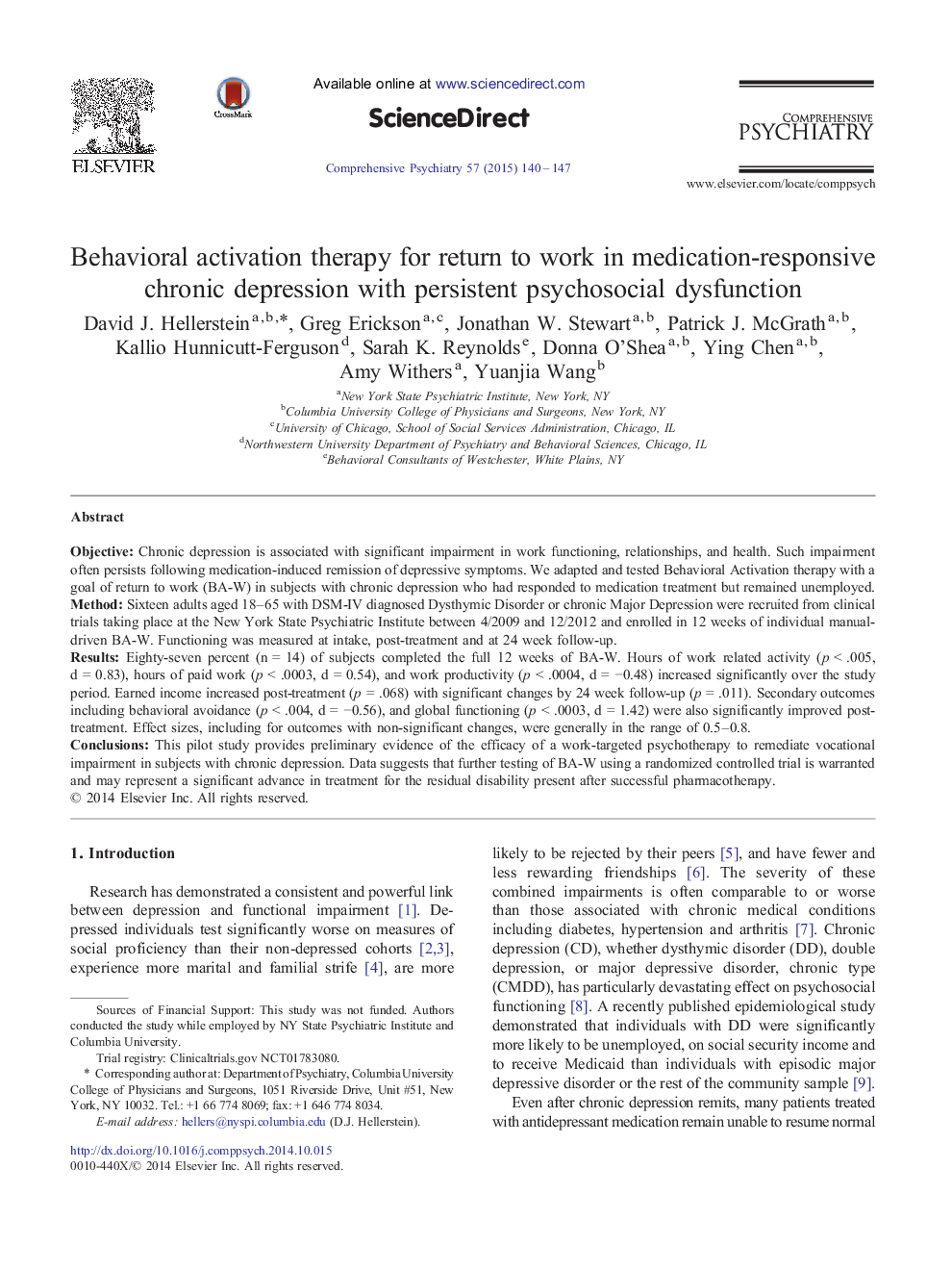| Article ID | Journal | Published Year | Pages | File Type |
|---|---|---|---|---|
| 318170 | Comprehensive Psychiatry | 2015 | 8 Pages |
ObjectiveChronic depression is associated with significant impairment in work functioning, relationships, and health. Such impairment often persists following medication-induced remission of depressive symptoms. We adapted and tested Behavioral Activation therapy with a goal of return to work (BA-W) in subjects with chronic depression who had responded to medication treatment but remained unemployed.MethodSixteen adults aged 18–65 with DSM-IV diagnosed Dysthymic Disorder or chronic Major Depression were recruited from clinical trials taking place at the New York State Psychiatric Institute between 4/2009 and 12/2012 and enrolled in 12 weeks of individual manual-driven BA-W. Functioning was measured at intake, post-treatment and at 24 week follow-up.ResultsEighty-seven percent (n = 14) of subjects completed the full 12 weeks of BA-W. Hours of work related activity (p < .005, d = 0.83), hours of paid work (p < .0003, d = 0.54), and work productivity (p < .0004, d = −0.48) increased significantly over the study period. Earned income increased post-treatment (p = .068) with significant changes by 24 week follow-up (p = .011). Secondary outcomes including behavioral avoidance (p < .004, d = −0.56), and global functioning (p < .0003, d = 1.42) were also significantly improved post-treatment. Effect sizes, including for outcomes with non-significant changes, were generally in the range of 0.5–0.8.ConclusionsThis pilot study provides preliminary evidence of the efficacy of a work-targeted psychotherapy to remediate vocational impairment in subjects with chronic depression. Data suggests that further testing of BA-W using a randomized controlled trial is warranted and may represent a significant advance in treatment for the residual disability present after successful pharmacotherapy.
